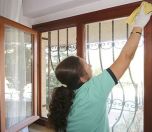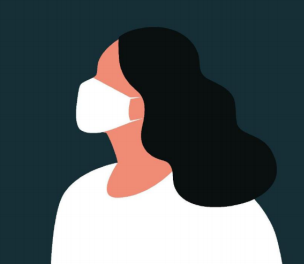Click to read the article in Turkish
The Domestic Workers Solidarity Union (Evid-Sen) has released a report regarding the experiences and problems of domestic workers in Turkey during the novel coronavirus (COVID-19) pandemic.
The report has shown that women have been subjected to violence both in their own houses and the houses where they go for cleaning.
Click here to read the full report (in Turkish)
91.6 percent suffered an income loss
In preparing its report titled "Violence and Work Relations in Corona Period," the union asked the domestic workers whether their social security premiums were paid by their employers or not. 83.7 percent of the participants said that they did not have social security. Of the ones who answered in the affirmative, 86.4 percent were live-in domestic workers.
When domestic workers were asked about the ways in which the COVID-19 pandemic affected their work relations, 56.8 percent of the participants said that they were laid off during this period. 5.2 percent of the domestic workers were put on unpaid leave. All in all, 91.6 percent of the women said that they suffered an income loss in this period.
90.3 percent of the domestic workers indicated that, except for themselves, there were people who became unemployed in their households. However, 84.4 percent said that they could not benefit from any aid in the coronavirus period and when they did, it was mostly a temporary aid.
Their houses foreclosed
43.3 percent of the domestic workers who participated in the survey said that they were faced with problems such as confiscation of property etc.
When they were asked what they were most afraid of during the second wave of the pandemic, 93.4 percent said that they were afraid of losing their jobs. It is found striking in the report that only 2.4 percent of the participants said that they were afraid of getting sick due to the novel coronavirus.
77 percent of the domestic worker women said that they were subjected to all forms of violence (namely, physical, psychological, economic and sexual) in their families and households. 80 percent indicated that they were subjected to physical and psychological violence in their families and households.87 percent were reportedly subjected to both economic and psychological violence in their households and families in this period.
When they were asked about the type of violence they were most frequently subjected to, 55.5 percent said that it was psychological violence. 15.1 percent of the domestic workers said that they were mostly subjected to physical violence in their families and households.
99.7 percent of the domestic workers who said that they were subjected to violence in their households and families indicated that they were subjected to violence in their workplaces as well. (EMK/SD)








